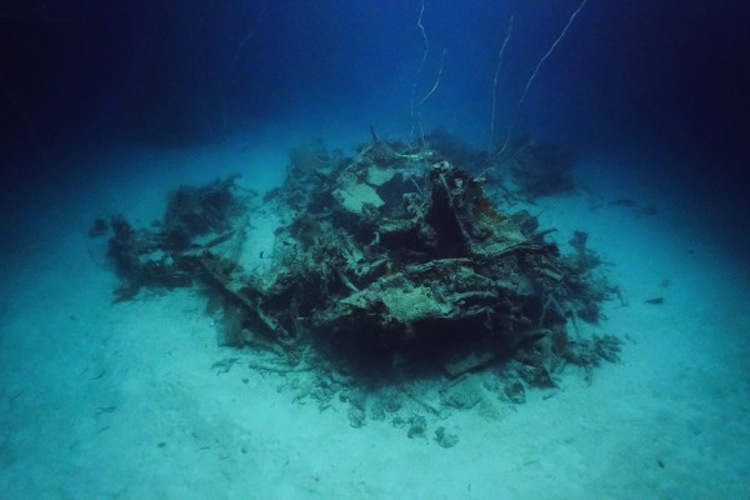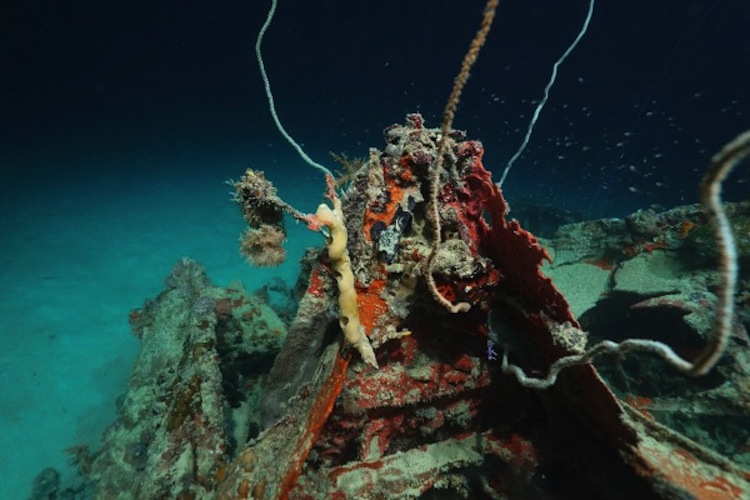Missing for 72 Years: WWII Aircraft Finally Located in Pacific

An American, World War II-era aircraft that had been missing in action (MIA) since July 1944 was recently located in the waters surrounding the Pacific Island nation of Palau.
The TBM-1C Avenger is one of several dozen U.S. aircraft scattered in the coral reefs or concealed within dense mangrove forests along Palau's island chain. This latest find adds to the growing list of wrecks discovered by Project Recover, an effort dedicated to the ongoing search for MIA aircraft and associated Americans since World War II.
"The importance of our mission is reinforced with each new discovery of a missing aircraft," Eric Terrill, an oceanographer from the Scripps Institution of Oceanography at the University of California, San Diego, one of Project Recover's three founding entities, said in a statement. [Photos: Underwater Robots Help Recover WWII Plane Wrecks]

"But this is more than reconnecting with history; it's about locating the missing to enable the U.S. government to bring them home for a proper burial," Terrill said. "With potential recovery sites around the world, Project Recover and its team of researchers and volunteers are expanding to intensify its searches using modern science and technology."
The project uses a combination of oceanographic technology and advanced archival research methods to uncover the wrecks and possible information about the airmen linked to the downed craft. Autonomous underwater robots equipped with sonar map the ocean floor, locating sites of interest for human divers to then scour for wreckage.
This detailed information is then shared with the Department of Defense's Defense POW/MIA Accounting Agency (DPAA), in hopes of notifying the families of these missing soldiers.
Dan Friedkin, founder and chairman of the Air Force Heritage Flight Foundation, helped make this latest find in Palau possible via a substantial financial commitment.
Sign up for the Live Science daily newsletter now
Get the world’s most fascinating discoveries delivered straight to your inbox.
"As someone who gained a passion for flying and admiration for our country's brave service members as a child, I will continue to support the efforts of Project Recover and their partner organizations," Friedkin said in the statement. "Every family member impacted by the loss of a service member deserves this type of closure."
Follow Kacey Deamer @KaceyDeamer. Follow Live Science @livescience, on Facebook & Google+. Original article on Live Science.










